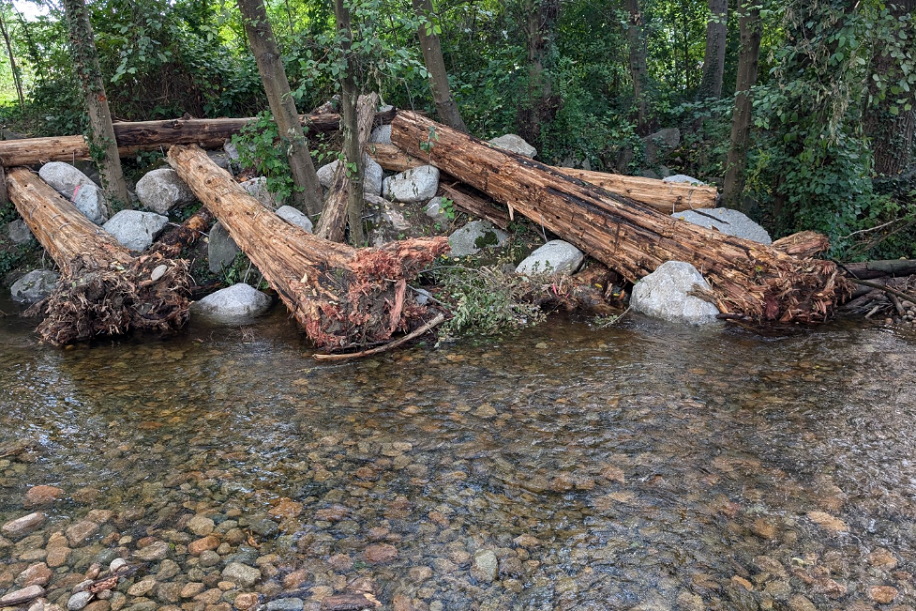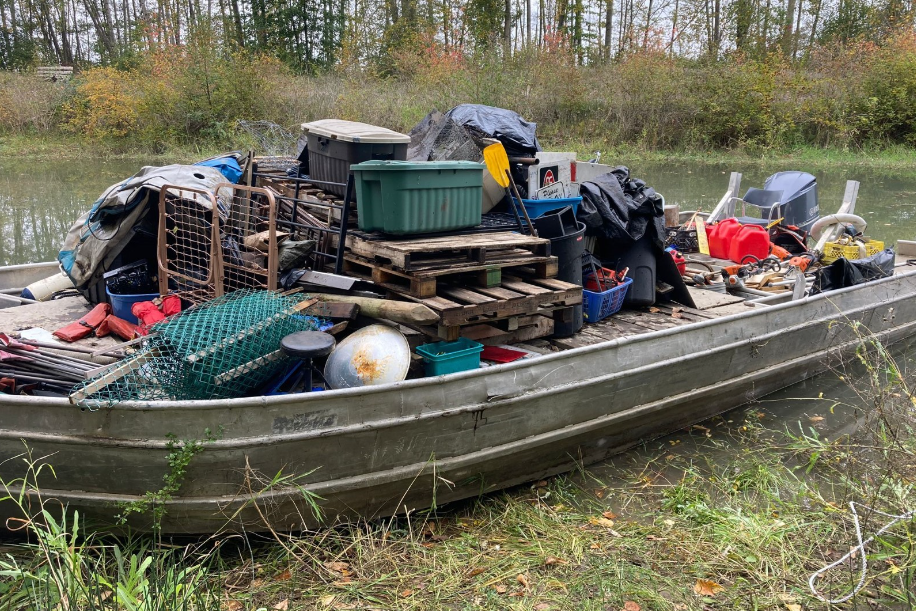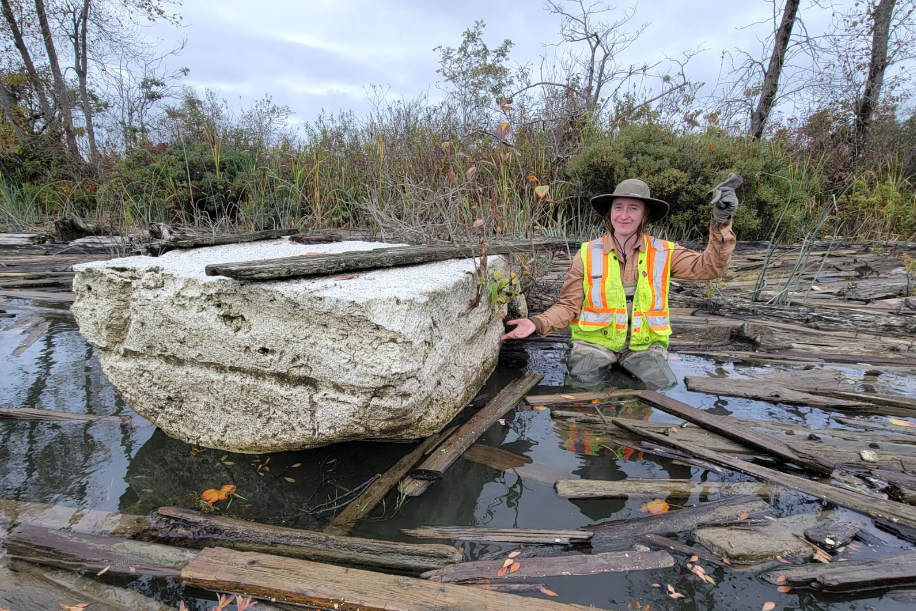This year, World Rivers Day falls on Sunday, September 22, 2024, and there are plenty of ways you can participate to support healthy rivers and watersheds!
What is World Rivers Day? Per their official site, “ World Rivers Day is a global celebration of the world’s waterways. It emphasizes the importance of rivers, aims to increase public awareness, and encourages better stewardship of rivers everywhere. Rivers in virtually every country face numerous threats, and only through our active involvement can we ensure their health and vitality for generations to come.”
“The health of a river mirrors that of a human. Just as a person’s lifestyle influences their well-being later in life, the quality of a river’s tributaries determines its overall vitality at the point of outflow, “writes Neil Fletcher, BCWF Director of Conservation Stewardship. “ This is why the BCWF is committed to investing in healthy watersheds—by nurturing these ecosystems, we ensure the river thrives. Take care of the watershed, and you take care of the river.”
The B.C. Wildlife Federation encourages you to take advantage of this opportunity to raise awareness about how vital rivers are for fish and wildlife and to call upon our members and followers to use this day to learn about, enjoy, or steward a local river!
Rivers Day events in British Columbia are spearheaded by the Outdoor Recreation Council of B.C. You can view a list of events on their website and find an opportunity near you to participate in a cleanup, plant trees, learn about salmon, or even go paddling!
Where will the BCWF be today?
The B.C. Wildlife Federation is hosting one event this year, along with the Cougar Creek Streamkeepers: a free 2-day Fish Habitat Stewardship Workshop in Delta taking place on September 21 & 22. Participants will join us for hands-on experience in riparian planting, building flexi baffles, and constructing rock weirs in the creek, as well as learning about fish and their habitat from experts in the field of riparian stewardship.
Registration for this event is full. Stay tuned to find similar events in your community throughout the year! Visit our Fish Habitat Restoration and Education Program page to learn more.
If you’re in Burnaby, you can also join BCWF staff at the Burnaby Village Museum for a free, family-friendly event to learn about our local waterways and restoration efforts to help protect these environments. Activities include demonstrations, displays, tours, crafts, and live entertainment. We hope to see you there!
Other Ways to Support World Rivers Day
- Keep Watershed Security in Mind: Consider watershed security and clean water when voting in the upcoming provincial elections. The Watershed Security Coalition is asking all candidates toare take a pledge to support local watershed security. Visit their website for resources to encourage your local candidate to sign, and to learn why this pledge is so important for the future of fish and wildlife in our province.
- Support Watershed Security Initiatives: Support the BCWF’s watershed conservation efforts by making a donation or becoming a BCWF member.
Past BCWF’s River & Stream Conservation Projects supported by donations and membership, and a multitude of funders include:
- Mosquito Creek Restoration: In 2024 in North Vancouver, B.C., B.C. Wildlife Federation alongside the North Shore Streamkeepers and the Squamish First Nation restored 120 linear meters of creek, significantly improving fish habitat.
- Fraser River Tidal Marsh Clean-Up Project: Alongside the Tsawwassen First Nation, the South Coast Land Management Program, and Nature Trust B.C., the BCWF has removed 44,780 kg of debris since 2021, enhancing the Fraser River estuary ecosystem. Habitat improvements are ongoing.
- 10,000 Wetlands Initiative (Beaver-Based Restoration): Launched in 2023, the BCWF’s 10,000 Wetlands project aims to build 100 Beaver Dam Analogues (BDAs) across the province alongside other Environmental NGOs and First Nations.
- Yaqan Nukiy Wetlands Project: This ongoing collaboration with the Lower Kootenay Band spans over 517 hectares in the Creston Valley. Recent achievements in 2023 include constructing two lakes (4.16 ha), restoring 25 wetlands (2.6 ha), and building one river (1.7 km).
- Juliet Creek Restoration: This 2023 project restored fish passage to the Coldwater River, enhancing coho salmon habitat by removing outdated culverts and reconnecting side channels. Over 1,200 trees were planted, with coho salmon observed in the new habitat within an hour of completion.
- Cougar Creek Restoration: Partnering with the City of Delta and the Cougar Creek Streamkeepers, in 2023 BCWF established a rain garden and built three in-stream rock weirs to enhance salmon habitat and facilitate community engagement.
- Bonaparte Side Channel Restoration: In 2023, BCWF revitalized a groundwater channel adjacent to the Bonaparte River in partnership with the Federal Department of Fisheries and Oceans Canada, the Bonaparte First Nations Natural Resources Department, and private landowners.

Mosquito Creek: Photos of our recent Phase 2 project at Mosquito Creek in North Vancouver, in partnership with Sḵwx̱wú7mesh Úxwumixw (Squamish First Nation) and the North Shore Streamkeepers. Cedar logs were used for the Large Woody Debris (LWD) installation. Designed to last 20-30 years, these structures add stream complexity, providing vital resting, spawning, and rearing habitats for salmon. Approximately 45 logs and 150-200 boulders were installed to support this critical ecosystem.


Fraser River Tidal Marsh Clean-Up Project: Photos from the Fraser River Tidal Marsh Clean-up Project. Most common debris collected included styrofoam, treated wood, and tires. Among the more unusual finds were massage chair remotes, a chest freezer, and seven messages in bottles. Children’s toys and household items were also frequently found embedded in the shorelines of these remote ocean areas. While rescuing lost toys, household items, and other garbage is no easy task, removing debris from these areas has major benefits to the fish and wildlife who rely on the vital Fraser River Estuary ecosystem.
